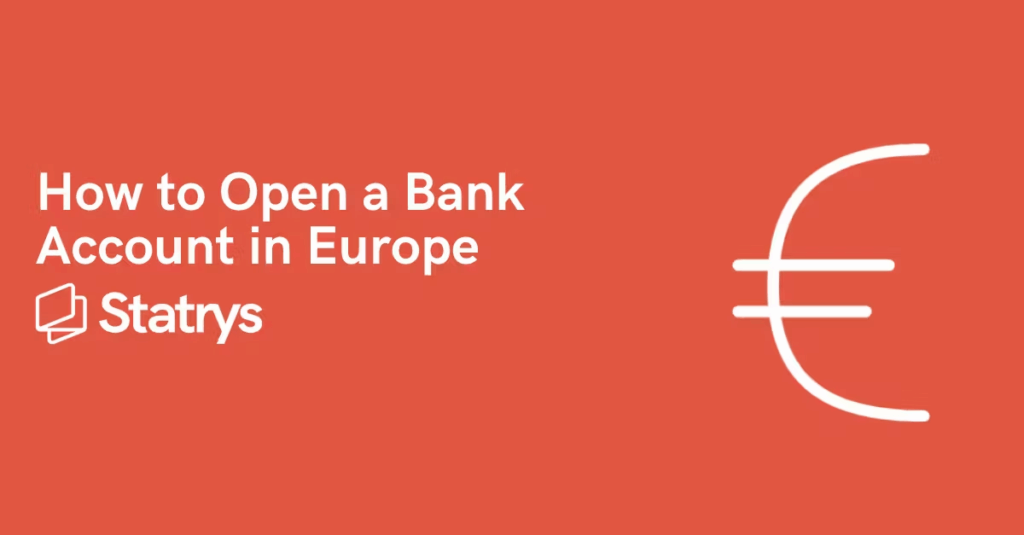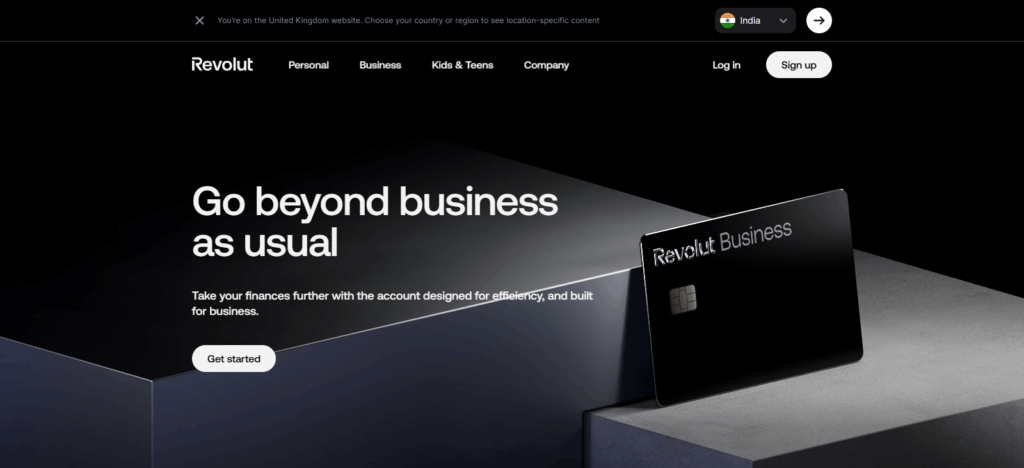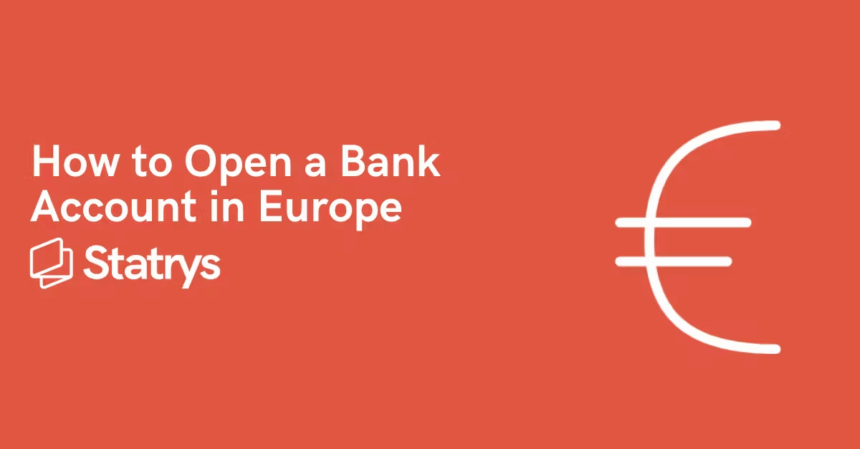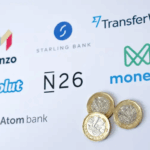This article explains how to open a Euro business account in Europe, focusing on steps, requirements, and tips to ensure a seamless experience.
With a Euro business account, a company can handle payments in euros, save on costs associated with currency conversions, and conduct business more seamlessly within the Eurozone. Whether going with a traditional bank or a fintech company, success comes down to planning.
Understanding Euro Business Accounts
A Euro business account can be identified as a type of bank account that is intended for businesses that operate in the Eurozone countries or conduct Euro-denominated transactions. Unlike a personal account, a Euro business account will include Euro-denominated transaction features such as a currency account, higher transaction limits, and financial reporting tools for payroll and multiple payroll processing.
Euro business accounts also provide an easier, cost-efficient and streamlined way for businesses to receive payments in Euro and make payments in Euro to Eurozone countries.

Euro business accounts are more of an asset to businesses that trade internationally (exports or imports) or offer cross-border services, as well as companies that provide services to customers or have business relations in multiple Eurozone countries.
Euro business accounts can be opened with traditional deposit-taking financial institutions, online banks, or fintech service providers, and offer varying usability, additional features such as debit and credit cards, online banking, and accounting software integrations, as well as cost structures and service extensions.
When opening a Euro business account, banks usually require the company to provide incorporation documents, identification documents for the shareholders and directors, a business description, and, in some cases, proof of residency.
Apart from enhancing and streamlining the company’s financial functions, the account also improves the company’s image by demonstrating professionalism.
How to Open a Euro Business Account in Europe

Example: Opening a Euro Business Account with an Online Bank in Europe
Step 1: Choose the Bank or Fintech Provider
Decide on a Euro business account online banks or financial service providers. For instance, you might consider N26 Business, Revolut Business, or a more traditional European bank like Deutsche Bank. Take into account fees, online banking, and banking with multiple currencies.

Step 2: Check the Requirements
Check and gather the documents needed as you prepare to open an account.
- Registration of business documents. This could include your business company certificate and incorporation documents.
- Identification documents of the directors and or the shareholders. A passport and or a national ID work.
- A proof of address. A bank statement or a utility bill issued to the business works.
- Optional: A brief description of the business and your business plan.
Step 3: Start the Application
You may begin the registration process from the website or mobile application of most online banks. To complete the application, enter your company information, director details and supply the requested documents.
Step 4: Complete KYC Verification
The bank will confirm your identity as well as the legitimacy of your business which may consist of:
- Document authentication
- Validating of business activities
- Video verification call
Step 5: Deposit Initial Funds
To open your account, some banks will require an initial deposit, which you may transfer to fulfill this requirement.
Step 6: Activate and Use the Account
After your account has been activated, you will be issued an account number and, where appropriate, a debit card. You will be able to:
- Receive and send payments in euros
- Handle international payments
- Connect other accounting software or payroll systems
Step 7: Maintain Compliance
Active account compliance requires the submission of KYC documents, business structure change reports, and compliance monitoring, along with other European banking rules.
Key factors to consider: Bank or Fintech Provider
Account Features and Capabilities
- Multi-Currency Support: Important for businesses that will engage with customers internationally.
- SEPA Instant Payments: Real-time euro payments across the EU.
- Batch Payment & Payout Automation: Important for businesses with high transaction volumes.
- Open Banking Compatibility: Clients can pay instantly, reconcile payments in real-time, and bypass high-fee card networks altogether.
- Handling of Cryptocurrency: Important for businesses focused on cryptocurrencies.
Fees and Charges
- Monthly Maintenance Fees: Some providers have a monthly fee for account maintenance.
- Transaction Fees: Charged per transaction or after a minimum transaction amount is reached.
- Currency Conversion Fees: Fees apply for multiple currency accounts.
- ATM Withdrawal Fees: Important for businesses needing to access cash.
Onboarding Process
- Digital Onboarding: Look for providers who will offer fully digital onboarding.
- Documentation: You will need your business documents and ID, so plan to have them.
- Approval Time: Some providers approve accounts in a matter of hours, while others may take days.
Regulatory Compliance
- Licensing: Ensure the provider is licensed by the appropriate financial authorities.
- KYC/AML Policies: Ensure they have effective Know Your Customer (KYC) and Anti-Money Laundering (AML) policies.
- Data Protection: Ensure compliance with GDPR and other data protection regulations.
Customer Support
- Availability: Identify the hours of support coverage (24/7, business hours, or specific hours).
- Channels: Support should be reachable by phone, email, and chat.
- Language Support: Determine support is offered in your language.
Tips for a Smooth Account Opening Process
Prepare All Required Documents in Advance
- Prepare your company registration certificate and director and shareholder IDs and proof of address.
- To avoid delays, make sure the documents are up to date, valid, and legible.
Understand Bank Requirements
- Consider the requirements of the specific bank or fintech provider before applying.
- Confirm the minimum deposits, any applicable Know Your Customer (KYC) rules, and applicable industry restrictions.
Choose the Right Provider
- Choose a bank or fintech that meets your business requirements, including features like online banking, multi-currency accounts, or cost.
Fill Out Application Carefully
- Ensure that all information on the application is accurate.
- Do not have discrepancies on the company name, address, or ID details.
Be Ready for KYC Verification
- Be aware that some banks may require a video call or additional steps to verify your business.
- To expedite the process, reply to requests as soon as you can.
Consider Professional Assistance
- For sophisticated business setups, work with a local accountant or business advisor.
- They can ensure that you are following the local banking and regulatory requirements.
Use Online Platforms When Possible
- Unlike traditional banks, online banks or fintech providers tend to have quicker onboarding processes.
- Choose platforms that offer well-organized, easy-to-follow guidance.
Maintain Compliance After Opening
- Ensure your account documentation is up to date.
- Notify the bank of any change to your business structure or directors to avoid account limitations.
Common Challenges and How to Overcome Them
Stringent KYC and Documentation Standards
- Challenge: The need for extensive documentation. Not supplying enough documentation, or supplying poor quality documentation, can cause severe delays, or even a refusal.
- Solution: Alongside registering your business and acquiring your company director’s ID and proof of address, gather every other relevant document, and double check them all for accuracy and validity.
Refusal of Applications
- Challenge: Refusal can result for high-risk businesses, incomplete documentation, or even bad credit history.
- Solution: Investigate which banks are more likely to work with your business type, and provide clear, thorough documentation. You may want to work with a fintech to obtain a business account.
Excessive Wait Times
- Challenge: You may find yourself waiting several days, or even weeks, for a business account to be approved.
- Solution: In contrast, online banks and fintechs are more efficient digital onboarding and business account approvals are typically instant or same-day.
Excessive and Hidden Costs
- Challenge: Some banks maintain high account balances, high fees for transactions, and hidden charges for account conversions.
- Solution: Evaluate a number of banks, and decrease your business accounts fees by selecting a bank with a clear and reasonable fee balance.
Multi-Country Operations Complications
- Challenge: Different regulations can make accounts take longer to set up when operating in different European countries.
- Solution: Look for banks with multi-currency accounts and pan-European coverage. Feel free to reach out to local advisors.
Limited Online or Mobile Banking Features
- Challenge: Many traditional banks are still missing features for modern digital banking especially for international businesses.
- Solution: Look for fintech providers or online banks with modern digital banking, multi-currency accounts, and good API features.
Language Barriers
- Challenge: Language differences can lead to confusion or delays when working with banks in other countries.
- Solution: Work with banks in your preferred banking language or hire a local business consultant for support.
Regulatory Compliance Issues
- Challenge: Not following EU banking regulations may lead to your accounts being restricted or fines.
- Solution: Keep up to date on KYC, AML, and other tax compliance laws, and have the necessary paperwork available for the bank.
Pros & Cons
| Pros | Cons |
|---|---|
| Facilitates seamless transactions in euros across Europe | Some banks have strict KYC and documentation requirements |
| Reduces currency conversion costs for Euro transactions | Traditional banks may have high fees and charges |
| Enhances credibility and professional presence for your business | Account opening process can be slow, especially with traditional banks |
| Supports multi-currency operations for international businesses | Some fintech providers may have limited physical branch access |
| Offers advanced online banking and integration with accounting tools | Certain industries may face account restrictions or rejections |
| Enables faster payments within the SEPA region | Language barriers may complicate communication with banks |
| Can provide business tools like payroll, cards, and expense management | Regulatory compliance requirements must be strictly followed |
Conclusion
For companies looking to work effectively in the Eurozone, opening a Euro business account in Europe is a vital first move.
By selecting the proper bank or fintech services, gathering the necessary paperwork, and comprehending the needs of the account, these companies are able to facilitate payments, lower the costs of converting currency, and build up their respect in the marketplace.
Even though issues such as limited KYC scrutiny, costs, and abiding by rules are there, the process is much easier with the right strategies.
A business account in Euros allows companies to control their finances, widen their presence in Europe, and shift their improvements confidently.
FAQ
What is a Euro business account?
A Euro business account is a bank account designed for companies to receive and make payments in euros. It’s ideal for businesses operating in the Eurozone or dealing with European clients and suppliers.
Who can open a Euro business account in Europe?
Any registered business, including corporations, LLCs, and sole proprietorships, can open a Euro business account. Some banks may have restrictions for certain industries.
Can non-European businesses open a Euro account in Europe?
Yes, many banks and fintech providers allow non-EU companies to open Euro accounts, although requirements may be stricter and documentation more detailed.
How long does it take to open a Euro business account?
The timeline varies: online banks and fintech providers may approve accounts within 1–3 days, while traditional banks can take 1–4 weeks.
Are there fees for opening a Euro business account?
Yes. Fees may include monthly maintenance, transaction fees, currency conversion charges, and ATM withdrawal fees. Compare providers to find the most suitable option.









